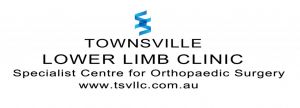Are you Fit for Surgery???
Smoking and Obesity are the major risk factors
Like training for a marathon, ‘training’ for surgery by getting your body in better shape may lessen the risk of complications during your surgery and improve your post-surgery recovery.
If you have surgery that requires you to receive a general anaesthetic, your body will be placed in a drug-induced state during which you will not respond to any stimuli such as pain.
Anaesthesia may be associated with changes in your breathing and circulation, which will be closely monitored throughout your surgery by a specialist doctor called an ‘anaesthetist’.
Having a healthy heart and lungs going into surgery will improve the likelihood of a good outcome from the surgery and may reduce recovery time, enabling you to go home sooner. Dr Hazratwala organises screening test prior to joint replacement surgery. As a standard if you are above the age of 65 and have 2 or more cardiac risk factors you will have an Echocardiogram and an ECG. If any abnormalities are detected on these investigation then you may be required to seek a formal consult with a cardiologist to optimise your cardio-vascular status.
The two biggest risk factors for complications are smoking and obesity. Along with Sleep apnea, diabetes, hypertension thrown in the mix your risk profile for surgery needs to be optimised and it is better to delay elective surgery.
SMOKING
Not only is smoking harmful to your general health and associated with heart disease, peripheral vascular (blood vessel) disease and multiple cancers, it can cause adverse changes during surgery.
Nicotine increases the heart rate and blood pressure. Smokers also have an increased production of mucous, which can clog the airways; an increased sensitivity of the airways, making the airways more prone to narrowing; and a decreased ability to carry oxygen in the blood. In addition, smoking has adverse effects on the blood flow to tissues that may impair wound healing.
The risk isn’t just during the surgery but also during the post-surgical period, where smokers have an increased rate of lung complications, and may have an increased risk of pneumonia or other chest infection,
“However, there’s a lot of evidence that smoking cessation will improve outcomes both from surgery and from anaesthesia.
The longer the period that you give up smoking before surgery the better. Ideally, you should stop smoking at least six weeks before surgery to help reverse a lot of the adverse effects, especially in your lungs.
Even giving up smoking for at least 12 hours before surgery will usually improve some of the adverse effects of nicotine and improve the ability of the blood to carry oxygen to your tissues.
OBESITY
Obesity increases the risk of a range of surgical and anaesthetic complications.
Obesity-related diseases such as hypertension, ischaemic heart disease and diabetes make your ability to be managed after an operation more difficult and increase the risk of complications including cardiac injury, myocardial infarction (Heart Attack) and other complications post-operatively.
Obesity may also be associated with hiatus hernia of the stomach, leading to a higher risk of regurgitation and aspiration, which in turn increases the risk of chest infections.
Anything you can do to lose weight before an operation is the second-most important thing to smoking cessation when preparing for surgery.
If I were to have major surgery, I would certainly be attempting to be as fit as possible.
Diabetes Mellitus
If you suffer from Diabetes it is imparative that you have good blood sugar control. The normal fasting blood sugar level for non diabetics should be below 7 (4-7mmol/l). In a diabetic the more accurate measure of blood sugar is a blood test called HBA1c. This averages the blood sugars over a 3 mth period and gives a single reading.
For any major orthopaedic surgery like hip and knee replacement, evidence suggest that HBA1c levels above 7 is linked to increased infections.
If you are considering surgery then you need to make sure that you have good blood sugar control for at least 3 mths prior.
Below is a video made by the College of Anaesthetist that describes anaesthesia that is easily understandable.
Ref : Home/News-and-social-media/October-2018-1/Are-you-fit-for-surgery, Mater.org.au
